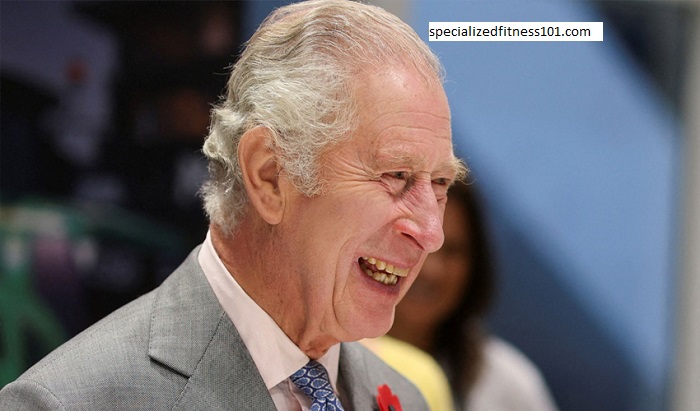The King’s Health: An Exploration of the King and His Welfare, and His Responsibilities to the Throne:
It is not just about history, but heavy responsibilities on the head of the United Kingdom, especially when it comes to King Charles III, the head of one of the most historically and notably eclectic and extraordinary families in the world. His health and well-being mean a lot to his family, country, and by extension, the entire Commonwealth. Since ascending to the throne in September 2022, following the death of his mother, Queen Elizabeth II, King Charles has diligently lived up to his royal obligations while keeping his health and wellness on par. This article examines the health challenges facing King Charles, including his approach to fitness and well-being with the demands of being a monarch in the 21st century.

A Lifetime of Commitment to Health and Fitness:
King Charles:
King Charles has been known for a long time to be devoted to his health, even before becoming the king. He has always focused his life on wellness, with various inspirations stemming from his love for the outdoors and personal interests in environmentalism. When he was younger, he was an advocate for physical fitness, swimming, walking, and sports like polo.
The focus in terms of King Charles’ health has changed over the years. As a young man, he involved himself in many physically athletic feats that portrayed the poise of an athlete. With age, his health priorities became more sustainable and comprehensive about leading a healthy lifestyle. The balanced approach of the King towards well-being embraced physical fitness as well as aspects regarding mental health, emotional strength, and diet. His constant promotion of a holistic lifestyle mirrors many of the values that the royal family has long represented.
Nutrition and Diet: A Royal Focus on Clean Eating:
King Charles:
King Charles is known to maintain a meticulous approach to his diet. He has been an advocate of organics for decades longer than most people today. As part of his commitment to green lifestyles, he works on an organic farm in his estate, Highgrove House, where he produces numerous kinds of fruits and vegetables, besides bee honey. He promotes organic farming not just to emphasize the nourishment from it but also its harm-free chemical content.
Some of his most significant diet staples come from the estate itself. He has been quite vocal in advocating for environmental sustainability and better animal care for over several decades. King Charles is said to support diets that are rich in fresh, locally grown ingredients-a diet heavily leaning on plant-based foods-though it does contain a fair share of his fresh vegetables, fish, and lean proteins. This approach towards food resonates with his effort to lower environmental impacts and healthily in better shape.
He has also emphasized the need for moderation, which would prove to be key to maintaining healthy states of mind as well as of bodies. While he is a connoisseur of the finer things in dining and sometimes indulges in excess, he is typically careful with quantities and the content of his consumption. This balances out the healthy eating benefits.
The Role of Physical Activity:
King Charles:
Another cornerstone of King Charles’ approach to health is physical activity. His private fitness routine has been changing with time, though he hasn’t lacked exercise or movement. Walking is part of daily life, and the King can often be seen strolling through the grounds of estates or taking part in outdoor activities. Such an exercise keeps him very active and, at the same time, lets him touch nature; a part of life that he has always held dear.
Besides walking, King Charles also swims. Swimming is a low-impact exercise; however, it would help much in terms of joint health. Swimming also offers cardiovascular benefits, and that would do much for anyone wanting to stay fit as they age. His ability to stay active outside reflects the importance of maintaining good health despite the challenges he faces with his royal duties.

Even with the challenges of aging, such as stiffening joints, King Charles’s enthusiasm for staying active has made it possible to miss little of his royal work. Increasing workload notwithstanding, he is still very keen on keeping fit and keeping up with physical activities.
Challenges with Aging:
King Charles:
In his mid-seventies, King Charles faced several challenges that characterized aging. Like most elderly folks, he has undergone physical changes that necessitate lifestyle adjustments. The King has had bouts of unhappiness with his body, which is particularly about his inability to move around and joint problems. In 2023 accounts, the healreaalreadyergonent some undergone interventions on his knee and problems, quite common for someone of this age.
Despite all these facts, King Charles has had an active public life as he attends most royal engagements and events though sometimes with the help of a cane. His struggle to remain fit in front of all these physical struggles is an affirmation of how he strives to be as long-lived as possible at the position and to remain a role model for similar health problems that people undergo.
King Charles has also been candid about his health problems, stating that one needs to learn to listen to the body and take care of oneself. Such openness by the royal reduces stigma on aging and health issues, especially in older people who are often in the public eye. His method of handling physical challenges calls for a strategy to continue living well into old age.
Mental Health: Stress and Coping Strategies:
King Charles:
In mental health, King Charles has been proven to be deep in his understanding, especially about his public life. The position of a monarch comes with huge stress and pressure, and it is not easy to handle the emotional burden of leadership. The burden of managing his losses such as losing his mother while being required to fulfill royal obligations places demands on his management as his king that determines his health in general.
Since he became Prince of Wales, Charles has been a significant champion for mental health awareness. His focus on the matter remains in the current dispensation after becoming the king. The work of the king has included collaborations with organizations such as the Prince’s Trust in efforts to support young people dealing with mental health issues. His personal experience of public life stress will undoubtedly influence his understanding of mental health care.
King Charles relies greatly on many stress management mechanisms. He is an avid reader and spends much time in books and literature, which he takes refuge in often to help manage his stress levels. Spending time at his estates in the countryside and having that bond with nature does help in de-compressing and reflecting. He has practiced meditation and mindfulness for years, helping him stay centered amidst the storm of royal life.

Medical Care and Support:
Because of the status that comes with fame, King Charles gets the best care available in medicine. The doctors taking care of him are the very best specialists offering a package of services to his advantage. That way, he will not miss a single minute for proper treatment when a concern surfaces, either minor or significant.

